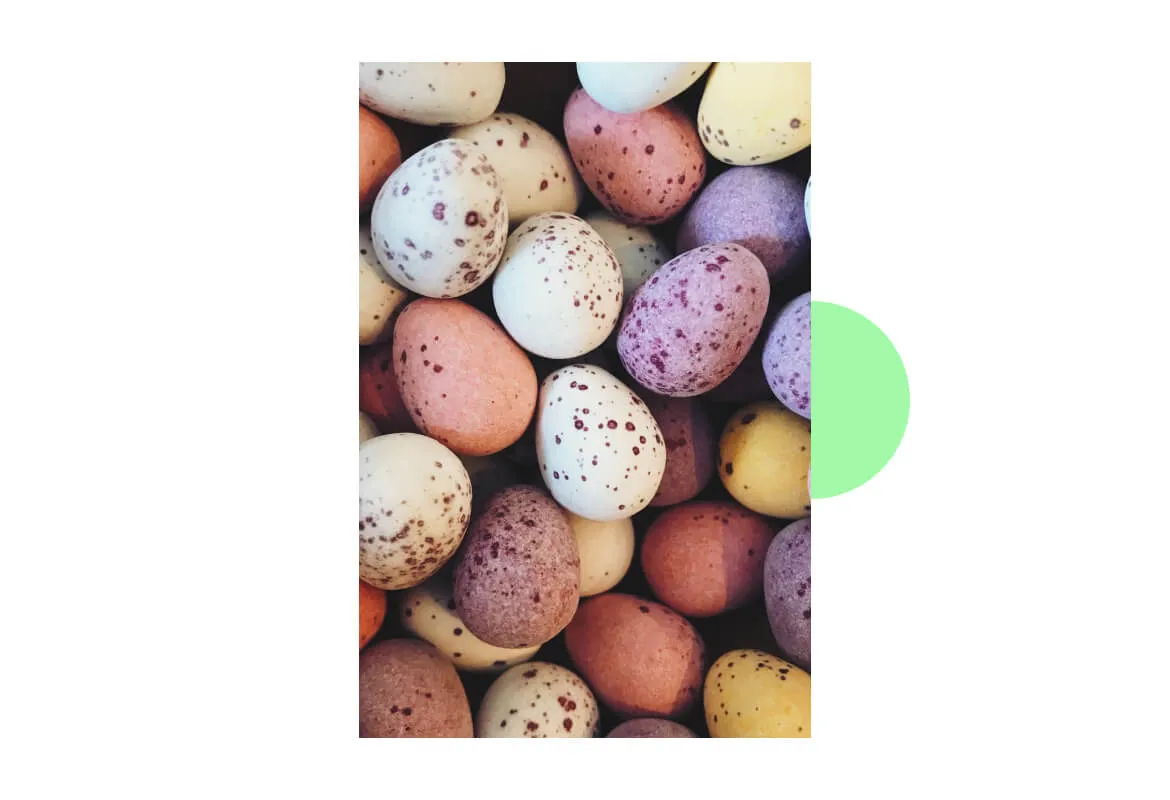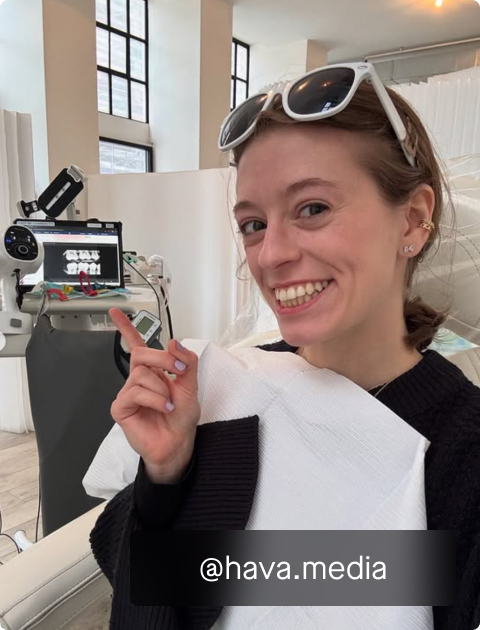White spots on teeth & other discoloration

It happens suddenly. You're looking at your teeth in the mirror and you think to yourself, "where did those stains come from, and should I be worried?" White stains, black spots, and other discolorations have different origin stories, and each require a different route to tackle them.
Spots on your teeth mean different things. Sometimes it is a signal that your hygiene routine could use a little updating, or that there is an underlying issue causing your teeth to change color. The good news is that, in most cases, noticing your teeth discolor is an early indicator of something amiss, which means you can still take steps to address and reverse the issue.
Wally's clinical team weighed in on the most common stains, spots, and discoloration they see come through the chair. So if you're worried about a new black spot, or wondering why that white stain only gets whiter when you whiten, this piece is written for you.
Coffee stains on teeth? How to deal with drink stains.
It's true, coffee does stain your teeth. That's because the microscopic contours on every tooth are excellent traps for food particles. Coffee (and other things) embed themselves into those spaces and stain the teeth. This is everybody's first concern but more importantly … No surprise, coffee is acidic. And it's also dehydrating so it can dry out your mouth. The increased acidity plus a drier mouth becomes a breeding ground for bacteria, which then lead to more acidity and bad breath.
Those acids sit on your teeth and weaken your enamel. Over time, your enamel wears down and becomes more brittle and translucent. Weak enamel makes your teeth look yellow because the dentin inside your tooth, which is yellow, starts to show through your enamel.
Over time those acids can cause halitosis, sensitivity, cavities, and other issues. But there are steps you can take to reverse and prevent this from happening. Read more 📖
White stains on teeth? Here's what to do
White stains on your teeth don't just look off, they signal something else is going on in your mouth.
Those white marks on your teeth are called "white spot lesions." Yes, lesions. Those white spots are a sign of early enamel decay. But don't fret! Like we said, they are a sign of EARLY decay, which means you can stop it, treat it, and reverse it if you take the right steps.
Let's geek out on what's happening - or if you don't want to dive deep, skip to the next section. Those white spot lesions are enamel experiencing decalificiation. If particular parts of your enamel are repeatedly exposed to acids from bacteria (and not frequently cleaned of that bacteria through your daily hygiene routine and routine dentist visits), the enamel in that area will demineralize, leaving a chalky white spot.
So the enamel is decalcified … but why is it white? We often associate tooth decay with darker discoloration, but in the case of white spot lesions the white color is a signal something has gone wrong. "White spot lesions reflect light differently than regular enamel, which is what makes them look white," explains Dr. Kevin Walker, DDS. "Preventing white spot lesions is always a challenge for patients who are going through traditional braces - it all comes down to maintaining excellent oral hygiene."
Braces are the best known cause for white spot lesions, but it's not the only cause. Read about other causes and how to get rid of those white stains 📖
Black spots on teeth demystified
If you're worried sick about the black spot you found on your tooth, rest assured it's something your dentist will know how to handle. More than 90% of Americans will find (or their dentists will find) some sort of black spot or mark on their teeth that needs medical attention at some point in their life.
Black marks on teeth - what are they?
Ok, this might seem silly, but if you ate something with black pepper flakes or poppy seeds, give your mouth a good rinse. Are the black marks still there?
Yes? Black marks on your teeth signal something is going on with your teeth causing the black mark. Here are the most common reasons your teeth develop black marks:
- Cavities or tooth decay
- Tooth injuries
- Tartar buildup
If your tooth with the black marks or spots is also sensitive to hot or cold drinks / food, is giving you pain when you eat, or is sensitive to sweets, those black spots or marks are probably a cavity.
Read more 📖 on what to do if you think you have a cavity.
Tetracycline staining on teeth
Grey teeth caused by tetracycline can be frustrating and feel embarrassing. Changing the color of tetracycline stained teeth is more involved than other types of staining, but the good news is, it is possible! Let's dive into why tetracycline does to teeth and the proven methods to help make your smiles whiter and brighter.
Tetracycline is an antibiotic (taken orally) used to treat a variety of infections like acne and syphilis. This antibiotic has been around since the 1970s and works really well against infections. However, when it comes to dental health there can be some downsides.
If a pregnant woman uses tetracycline during her third trimester, or a child takes it when their teeth are forming (age 3-4 months, or age 7-8 years), the tetracycline can make its way into the teeth and cause them to discolor.
That's because the tetracycline absorbs easily into tissues that are growing and calcifying like, you guessed, your teeth. Tetracycline doesn't affect adult teeth after they have erupted through your gums because once your teeth are formed and out and about, they stop calcifying.
Teeth that are "stained" from tetracycline are actually discolored from the inside and will not react the same way to whitening like non-affected teeth. If you have tetracycline-stained teeth, don't despair! There is a way to whiten them. Read more 📖
Interested in teeth whitening?
Our dental studio membership (only $199 a year) includes unlimited dental cleanings and whitening so your teeth will look as amazing as you feel. Join our waitlist and keep an eye on your email for how to score early access.









